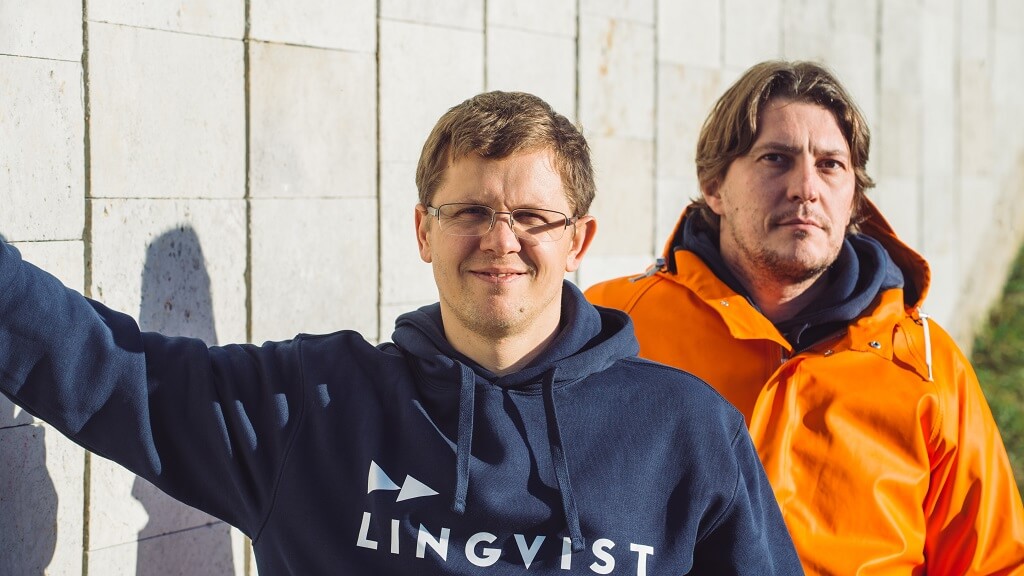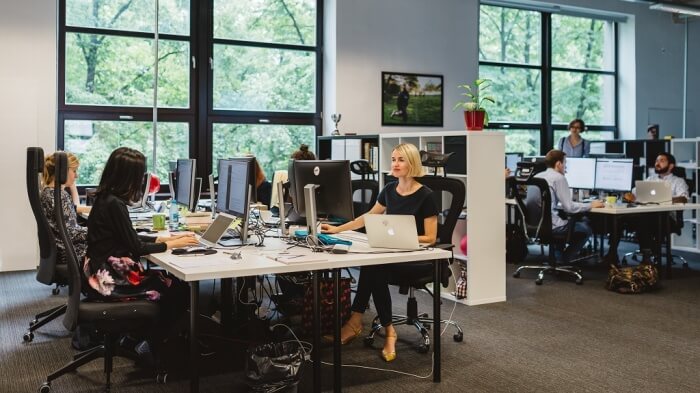Lingvist: Accelerating Language Learning with AI
Could the machine learning language app be better than human tutors?

Lingvist’s CEO and co-founder, Mait Müntel, tells us how his app accelerates language learning through artificial intelligence technologies. He explains how working at CERN provided inspiration for his innovation and why Brexit could inhibit growth here in the UK.
Tell us about your business.
Lingvist is a language learning app that uses artificial intelligence to tailor the course to each and every learner, customising the courses better than a private tutor could. We’re making language learning significantly faster.
Where did the idea come from?
I lived in Switzerland for several years while working at CERN. The language at work was English, so I had no trouble professionally, but life outside of work happened in French.
Thus, my interactions with my neighbours were limited to simple courtesies and I’d run into trouble (missing trains, etc.) while travelling in the region due to the language barrier.
I’d attempted to learn a few times by taking French classes, using self-study books, and trying out some online tools; however, none of them worked for me. I realised that there are so many inefficiencies in language learning which could be addressed with the help of machine learning.
So, after we discovered the Higgs boson, I had some time and decided to try and build a programme that would help me learn French. Two hundred hours of learning later, I took a French exam usually taken at the end of high school and, somewhat to my surprise, passed it with an above average result.
I didn’t immediately think of turning this into a business venture. However, I met Jaan Tallinn (one of the founders of Skype and an early investor in DeepMind) at a physics conference, we got talking about language learning, and it turned out that he was building something very similar.
We compared our programmes, mine turned out to be better, and Jaan encouraged me to build this into a business.
Most people who have had to learn a foreign language have given up at one point because it’s such a time-consuming task. I’m sure many more would succeed if there were a faster way to the end goal.
How has the business grown?
We have nearly 40 people working between our offices in Tallinn, London, and Tokyo today. We’re still pre-revenue, with plans to start monetising really soon. We’re proud to have more than 600,000 learners all over the world.
Do you see wider opportunities in your sector?
Education is a sector that largely hasn’t been disrupted yet, so I think there are a lot of opportunities for new entrants. Developments in AI have the power to fundamentally change how learning happens.
AI is a great partner for self-directed learning. For instance, with Lingvist, AI can adjust the course to you much like a private teacher would – reviewing and covering the material that is relevant just and only for you.
As the learner can focus on learning only the material they need or that they are struggling with, as opposed to following a rigidly set curriculum, we make learning a much more effective process.
We hope to speed up language learning significantly, so that more people will have sufficient resources (be it mental capabilities, time, or money) to learn a new language.
Explain some of the challenges you've faced
Founders and CEOs have to do a lot of public speaking – pitching in front of audiences filled with potential investors, giving talks about your company and product.
I used to find public speaking very difficult; I didn’t think I was cut out for it. Techstars was the place that made me really work on this skill, and I’ve gotten much better at public speaking. Stage fright is definitely something you can overcome with practice.
How did you get word out there about the business?
The story of Lingvist – with its roots in CERN and me being my own guinea pig – has opened a number of doors for us and attracted bold learners to test our tool.
What's been even more impactful in terms of user acquisition has been the product itself. We've built something different, something that learners find pleasure in engaging with and are happy to tell their friends and colleagues about.
What's hard about running a business?
Surely working too many hours. As a co-founder there are times where I’ve worked been in work mode every hour of the waking day. The thing that makes it fulfilling and fun is seeing your idea grow – to have other people join and put their effort and energy into building the company.
What would you change about the politics of the UK?
Brexit. London is a great place for building a startup, but because of Brexit and the uncertainties around it we are very cautious about hiring more people to join our team in the UK and prefer to hire them to offices with a more certain outlook.
What is your biggest mistake?
My background before founding Lingvist was in scientific research. Looking back, I had very little understanding of what I was getting into and wish I’d started reading books on organisational management and leadership sooner.
This would have helped me avoid many typical mistakes first-time founders make. I’ve found Patrick Lencioni’s books especially insightful.
What sets your business apart from the rest and how have you nurtured that point of difference?
We are the first language learning tool to use AI effectively in the learning process.
While most other digital language learning tools started off as digitised, interactive, or gamified textbooks, Lingvist has used the learning device to customise the learning content around each and every learner from the very beginning.
How have you developed your staff?
I rely on our great team leads. They are extremely smart people with experience in building great teams in the past. We’ve tried to build a work environment where people feel that what they do makes a difference and can change the world.
Now our biggest challenge is to make sure there are enough resources for all the great ideas our teams have.
How do you rate government support for growing businesses and why?
We’ve received a €1.6m grant from the European Commission's H2020 programme for research and innovation, and we’re very grateful for it.
This was an excellent programme directed at supporting R&D, with marginal overhead in terms of reporting and a vast impact in terms of making us more attractive for investors.
What are your top three tips for people starting a business today?
If you’re thinking of starting a business but haven’t done it yet, then go out and start it now! It’s hard work but really rewarding because it will help you to crystallise what's important for you and your passion and what's not.
Learn from others’ mistakes – you don’t have to reinvent the bicycle in everything that you do. Read books on leadership to avoid some of the most common pitfalls.
Learn from your own mistakes quickly.
Thanks for signing up to Minutehack alerts.
Brilliant editorials heading your way soon.
Okay, Thanks!





